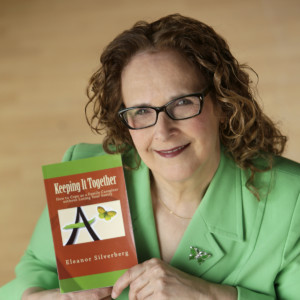 Physically or mentally, caregiving can takes “its” toll. What is the “it” of Keeping “It” Together while caregiving an ailing, aging parent or chronically ill family member? Even if the physical job is not 24/7, the worries may be there around the clock. You may be worrying about a family member who lives alone, has limited mobility and resisting help.
Physically or mentally, caregiving can takes “its” toll. What is the “it” of Keeping “It” Together while caregiving an ailing, aging parent or chronically ill family member? Even if the physical job is not 24/7, the worries may be there around the clock. You may be worrying about a family member who lives alone, has limited mobility and resisting help.
Caregiving is something you do not normally sign up for but rather “it” falls upon you, sometimes without warning. The circumstances dictate. Such was the case for Florrie Munat whose husband, Chuck was never the same after suffering a stroke. In her transforming article, she shares her caregiving story:
One day he was an active, intelligent, 69-year-old retired teacher and writer, able to drive his car, dress himself, take a shower, and create intricate family genealogies. That was the “Old Chuck,” the one I’d lived with for thirty-four years .Overnight, he became dependent on others for his basic needs: bathing, toileting, dressing, transferring. Worse, he was confused, unfocused, and generally not himself. Not the “self” I knew anyway. Each morning, I’d enter his hospital room with high hopes that Old Chuck would be back. Instead, there was New Chuck, the wild-eyed one who couldn’t remember our children’s names when I showed him their photographs. The one who wandered the hospital barefoot, trying to find his way home.
Florrie also described the overwhelming emotions she felt including anger, guilt and sorrow that spiraled her to lose “It” and fall into a depression. Individuals immersed in the caregiving role commonly get diagnosed with depression attributed more to the care demands than to the emotional impact of losing a family member to illness. It is beneficial though for the grief and loss to get addressed rather than overlooked and so easily overlooked presenting similarly to depression. Although anti-depressant medication is helpful in relieving symptoms, the medication does not address the grief. Processing the grief is helpful for you to adapt to the circumstances, transition from the old normal to a new normal, obtain comfort, hope, meaning and make resolve.
“It” is a juggling act to cope, remembering you are only human with feelings and limitations. “It” is keeping in mind that “It” takes a village. Help is available for meeting the care demands. Help is also available for addressing the overwhelming feelings that impact on your well-being and ability to Keep “It” Together without losing your sanity.